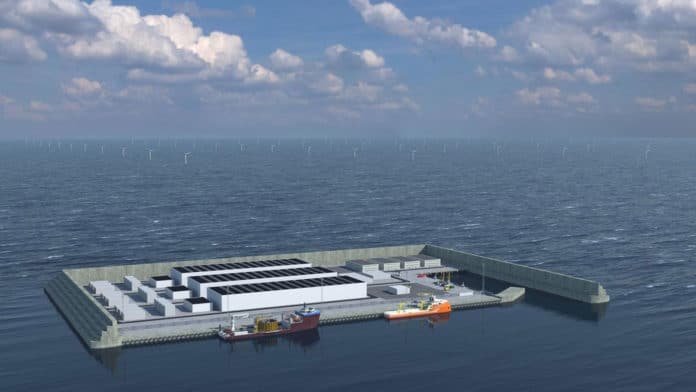Denmark wants to build the world’s first wind energy hub in the North Sea. The energy hub will be an artificially constructed island, located 80 km (50 miles) from the shore of the Peninsula Jutland, as the Danish Ministry of Climate, Energy, and Utilities announced in a press release. It will be able to cover the electricity consumption of ten million European households once fully implemented.
The energy hub will serve as an offshore power plant, gathering and distributing green electricity from hundreds of wind turbines. The island is expected to have a total area of at least 120,000 square meters – an area almost the size of 17 football fields – and will cost $34 billion to build.
Around 200 wind turbines are expected in the first phase of the project. An energy hub collects electricity from the surrounding offshore windfarms and distributes it between countries connected via electricity grid. After completing the first phase, three million households could be supplied with green energy.
“The energy hub in the North Sea will be the largest construction project in Danish history. It will make a big contribution to the realization of the enormous potential for European offshore wind, and I am excited for our future collaboration with other European countries,” says the Danish Minister for Climate, Dan Jørgensen.
The project will be a public-private partnership between the Danish state and private companies. The State will own the majority of the island. However, the private companies will be critical to the project to meet the potential in terms of innovation, flexibility, cost efficiency, and business potential, the ministry said.
A broad coalition of Danish parties indicated that the energy island could be completed in 2033. The long-term goal is to find the possibility to store electricity from renewable sources on the energy island, convert it into liquid fuel, and route it to Denmark and other neighboring countries via seabed cables, according to a press release from the Danish authorities.
The country wants to contribute to the EU’s climate target of being climate neutral by 2050. Last year, Denmark decided not to operate any further oil and gas production in the North Sea until 2050 – future licensing rounds have already been canceled.
